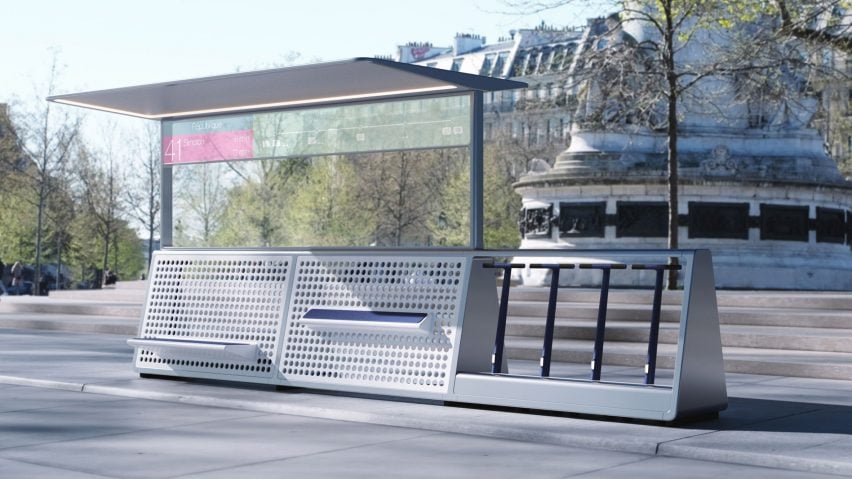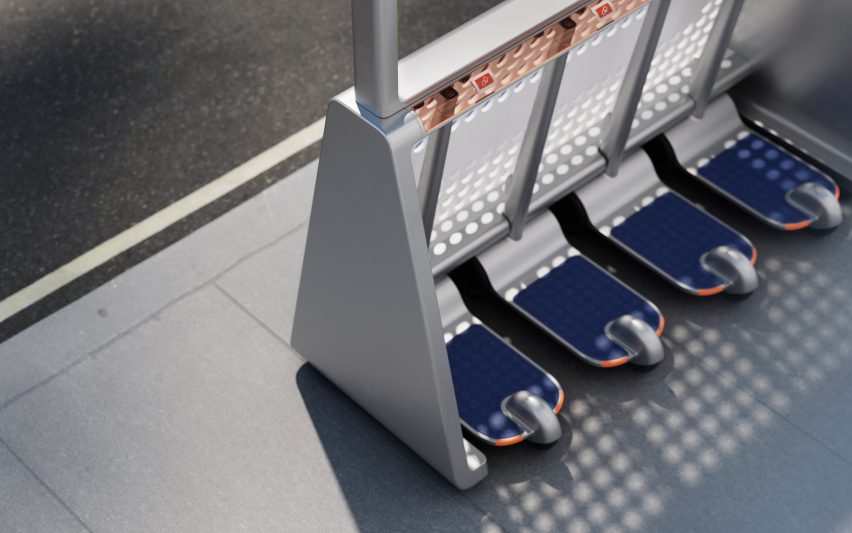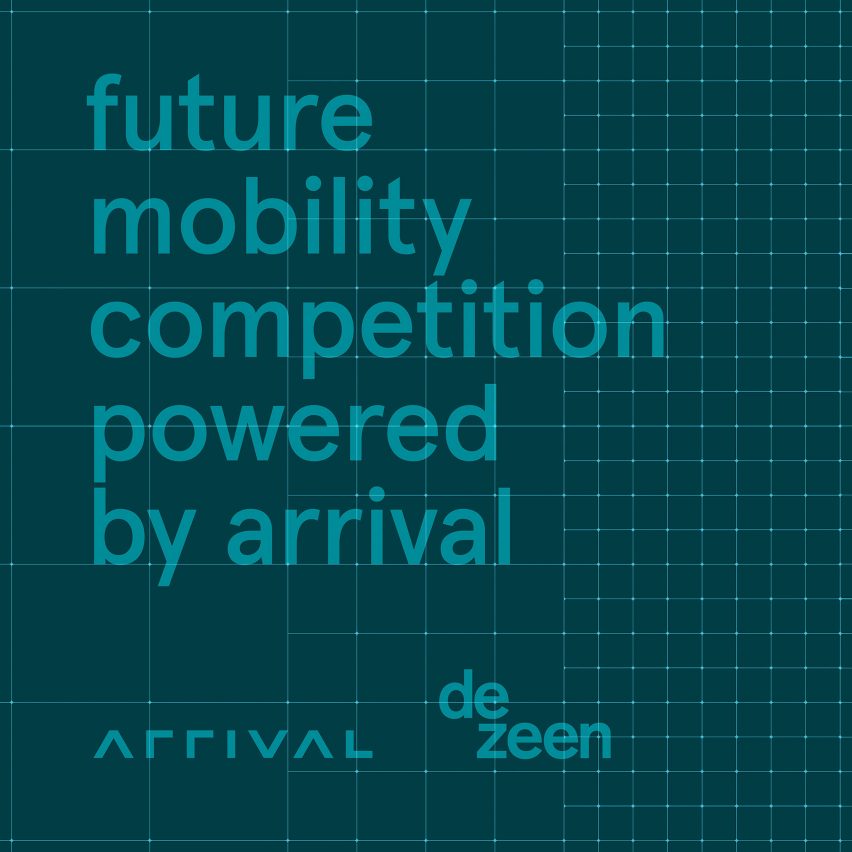
Unknown Untitled proposes an electric scooter sharing system for Paris that avoids cluttering the streets
Design studio Unknown Untitled has proposed an e-scooter sharing scheme for Paris in which scooters can be dropped off and parked at bus shelters throughout the city for Dezeen's Future Mobility Competition powered by Arrival.
Called Micro Mobility Shelter, Unknown Untitled's concept aims to bring together public transportation and micro mobility solutions in a cohesive scheme to declutter sidewalks and "improve the way micro mobility vehicles are charged, parked and dispatched."
As its name suggests, the concept is an e-scooter sharing system that integrates parking into the city's wider network of bus stops, with new shelters that tidily and discreetly conceal the scooters when parked.
The e-scooters can be picked up and dropped off at any shelter within the city, increasing flexibility and reducing the costs and responsibilities associated with vehicle ownership.
The shelters are equipped with electric charging stations, which negates the need for swapping batteries manually.
The triangular profile of the shelter shell follows the angle of the e-scooter's stem so that the scooter can slot into the hub without taking up excess space.
The angle simultaneously provides a tilted wall to form the backrest of the seats for the bus shelter.
The overall length of the scooter has been shortened compared to traditional e-scooters in order to reduce the footprint of the charging hub.
The scooters are equipped with three wheels – two in the front and one at the rear – to provide stability and safety.
Read more about the proposal below:

Micro Mobility Shelter
Unknown Untitled
Paris, France
Finalist
"The bike/scooter sharing services in the last five years have hijacked the streets and cluttered the sidewalks, sometimes without legal authorisation.
"Speculative entrepreneurship led an infinity of companies to produce bikes and scooters, which sometimes directly filled the junkyards. Paris was one of the best case studies of this industrial Darwin effect, resulting in an ecological disaster. It caused nuisance to residents, workers and tourists.
"Micro mobility regulations have been implemented by the city but drawbacks remain. Although battery swapping has definitely simplified the charging process and parking spaces have been allocated to scooters, charging solutions and dedicated real estate are not yet solved.
"In Paris 2030, the number of private cars will be drastically reduced. The speed reduction to 30 km/h, the expansion of bike lanes and the interdiction of old and pollutant vehicles are leading toward this scenario.
"This project aims to bring together public transportation and micro mobility solutions in a more cohesive way as they seem to be the future of commuting in Paris.
"Designing new vehicles is not the only way to solve mobility issues. Building a new traffic network based on the existing road infrastructure may also transform the ways we commute.
"Thanks to the e-scooter, the extra miles after the bus ride becomes much easier, it makes up for the deficiency of public transportation.
"The charging hub is the base unit of the modular micro-architecture system. Inspired by Arrival's modular approach, construction blocks such as the base unit, different display frames and roofs, could be assembled together to build all types of bus stops.
"This will address diverse street situations in Paris, from narrow medieval streets to grand boulevards."

Future Mobility Competition
The Future Mobility Competition is a global design contest that seeks to support emerging talent, bringing radical solutions to solve mobility challenges in cities and, in turn, create true sustainability and empower local communities.
Launched in partnership with electric vehicle company Arrival, the contest asked entrants to identify problems with mobility in their city, or a city they are familiar with, and propose solutions that will improve how people move around their environment.
The contest received over 170 entries from more than 45 different countries around the world.
The entries were assessed by a judging panel comprising Kunlé Adeyemi of architecture, design and urbanism studio NLÉ, Elizabeth Diller of New York studio Diller Scofidio + Renfro, Yves Béhar of Fuseproject, Jeremy Offer and Martina Wierzbicki from Arrival, as well as Marcus Fairs and Cajsa Carlson from Dezeen.
The panel selected 10 proposals as finalists to be published on Dezeen. We are unveiling one finalist a day from 27 June, culminating in the winner being announced on 8 July.
The winner will win the top prize of $25,000, while the runner-up will receive $15,000 and the third-placed entrant will receive $10,000. Each of the seven remaining finalists will receive prize money of $5,000.
Find out more about the Future Mobility Competition ›
See all the finalists revealed so far ›
Partnership content
The Future Mobility Competition powered by Arrival is a partnership between Dezeen and Arrival. Find out more about Dezeen partnership content here.